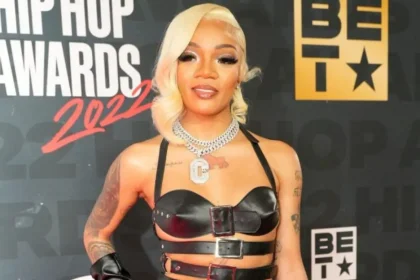In an unprecedented legal showdown that has captured the attention of both entertainment and legal circles, T.I. and Tameka “Tiny” Harris initially secured a remarkable $71.4 million verdict against MGA Entertainment, the powerhouse behind LOL Surprise! OMG Dolls. The case centered on allegations that MGA had misappropriated the distinctive trade dress of the OMG Girlz, a musical group that featured their daughter, Zonnique Pullins. However, a federal judge’s intervention has dramatically altered the landscape of this high-stakes battle, proposing a substantial reduction that would leave the Harrises with $17.8 million.
This dramatic shift in the case’s outcome represents one of the most significant reductions in entertainment industry litigation history. The initial victory had been celebrated as a watershed moment for artists seeking to protect their intellectual property rights, particularly in cases involving cultural appropriation and creative expression.
Legal intricacies and cultural impact
The core of the dispute extends beyond mere financial compensation, delving deep into the realm of cultural appropriation and intellectual property rights in the entertainment industry. The initial jury verdict represented a groundbreaking moment in the protection of artistic expression, particularly within the African American entertainment community. The judge‘s subsequent decision to reduce the punitive damages by $53.6 million, however, introduces complex questions about how the legal system values and safeguards cultural identity.
The case has highlighted the challenges in quantifying damages when dealing with cultural appropriation claims. Legal experts point out that traditional methods of calculating damages may not adequately address the nuanced nature of cultural influence and artistic innovation. The substantial reduction in punitive damages suggests a need for new frameworks in evaluating such cases.
Entertainment industry implications
This case has sent ripples through the entertainment industry, prompting serious discussions about the boundaries of creative inspiration versus unauthorized appropriation. The significant reduction in damages raises critical questions about how the legal system quantifies cultural influence and artistic innovation. For industry professionals, this case serves as a crucial precedent in understanding the parameters of trade dress protection and the potential consequences of perceived infringement.
The entertainment sector now faces the challenge of establishing clearer guidelines for protecting artistic expression while allowing for creative inspiration. Major companies and independent artists alike are closely monitoring this case for insights into how they can better protect their intellectual property without stifling creativity.
Cultural identity protection
The Harris family’s battle against MGA Entertainment transcends typical intellectual property disputes, highlighting the broader struggle for recognition and protection of African American cultural expressions in commercial spaces. The OMG Girlz, known for their distinctive style and musical contributions, represent a larger narrative about the preservation of authentic artistic identity in an increasingly commercialized entertainment landscape.
This case has brought attention to the importance of protecting cultural expressions in an era where appropriation can quickly lead to commercial exploitation. The reduction in damages has sparked conversations about the value placed on cultural contributions and the mechanisms available for their protection.
Future legal precedent
The judge’s decision to substantially reduce the damages award could significantly impact future cases involving similar claims of cultural appropriation and trade dress infringement. Legal experts suggest this case may influence how courts approach the valuation of cultural products and intellectual property rights, particularly in cases where the distinction between inspiration and infringement becomes blurred.
The reduction in punitive damages may also influence how future plaintiffs structure their claims and present evidence of damages. This could lead to more sophisticated approaches in demonstrating the economic impact of cultural appropriation and trade dress infringement.
Moving forward
As the dust settles on this landmark case, the entertainment industry watches closely to see how this decision will shape future approaches to protecting artistic expression and cultural identity. The reduction in damages, while substantial, does not diminish the importance of the underlying issues raised by the case. The Harris family’s persistence in pursuing justice highlights the ongoing need for robust protection of creative rights in the entertainment industry.
The case has also sparked discussions about potential legislative reforms to better address cultural appropriation and intellectual property protection in the digital age. Industry stakeholders are calling for clearer guidelines and more comprehensive frameworks for protecting artistic expression while fostering creativity and innovation.
















